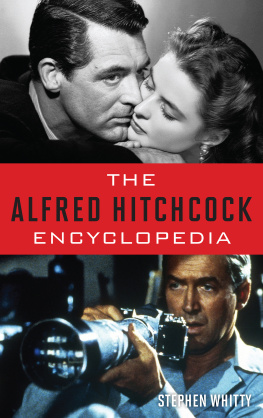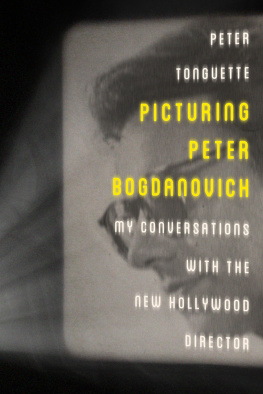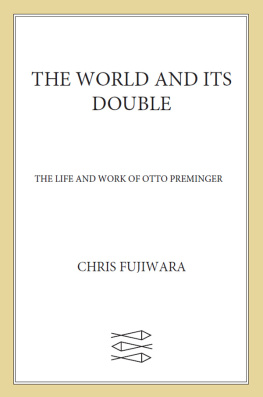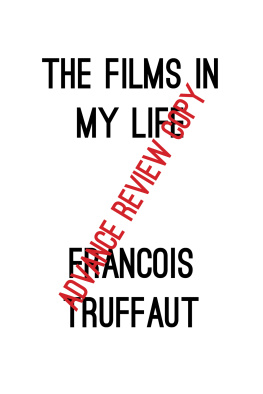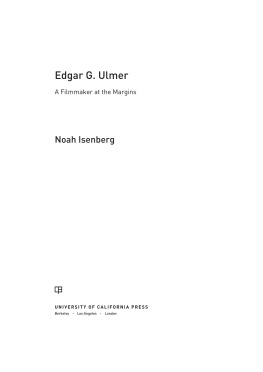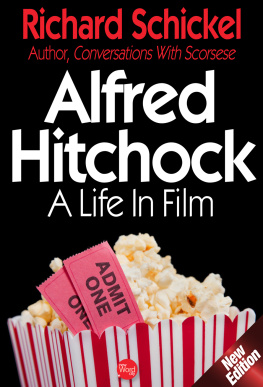A MUST FOR ANY FILM NUT.
Details
Illuminating These were (and sometimes are: a few yet breathe) men rooted in history as much as in Hollywood. Their collected memories make the past look fearfully rich beside a present that is poverty-stricken in everything except money.
The New Yorker
Bogdanovich is one of Americas finest writers on the cinema. Thank goodness [his] Who the Devil Made It has come along to remind us that films and writing about film were, at one time, focused on the work and not strictly on the bottom line.
The Boston Globe
A treasure trove on the craft of directing.
Newsday
Monumental The directors reminiscences about technique, working methods, sources of ideas, and relationships with actors and studios are thoroughly entertaining.
Publishers Weekly
A fine achievement that helps illuminate the art and craft of some remarkable directors There are plenty of revealing anecdotes.
Kirkus Reviews
This compendium [is] very valuable, even essential, for film collections.
Library Journal
A Ballantine Book
Published by The Ballantine Publishing Group
Copyright 1997 by Ivy Moon Company
All rights reserved under International and Pan-American Copyright Conventions. Published in the United States by The Ballantine Publishing Group, a division of Random House, Inc., New York.
http://www.randomhouse.com
Library of Congress Catalog Card Number: 9794232
eISBN: 978-0-307-81745-7
This edition published by arrangement with Alfred A. Knopf, Inc.
v3.1
I liked almost anybody that made you realize who in the devil was making the picture Because the directors the storyteller and should have his own method of telling it.
HOWARD HAWKS
Most of the good things in pictures happen by accident.
JOHN FORD
Contents
A listing of each directors films, along with brief biographical notes, appears immediately after each interview. All years given are release dates in the country of origin.
Introduction
THE LIGHTNING ART
Early in the summer of 1996exactly 101 years after the first movies were exhibitedWarren Beatty and I were standing around on the lawn of Henry Jagloms Santa Monica home watching a bunch of young children at a birthday party (two of them Warrens, two Henrys, one mine); we were talking about some of the big changes in the picture business since we had come into it in the late fifties and early sixties. A lotta things dont seem to count anymore, Warren was saying. John Ford? Whos he? What? Elia Kazan? He laughed at the absurdity of it: mentioning Ford, because that late director is still the U.S.A.s most honored, and Ive been a kind of biographer of his; and Kazan, because Beattys first film was directed by this currently somewhat-out-of-vogue filmmaker at the peak of his considerable success. But there was more on Warrens mind than how fleeting is fame, or the now prevalent Hollywood mind-set in projects and casting called flavor of the month. Jesus, he said with a certain amazement, everybodys dead.
I knew exactly what he meant, because Id had the same thought repeatedly; not surprising, since both Warren and I had come into pictures just when the old studio system was in the process of falling apart. Wed been two young men in an old mans business, and by now nearly all the old men wed worked with or gotten to know had passed away; and wed become older men in a younger mans business that had in its very nature become polarities apart from what weWarren and Henry and Ihad grown up with or joined or rebelled against.
Beatty, Jaglom and I had entered show businessthe theatre and television firstas actors. I first met each of them separately, in Manhattan late in the fifties. Both Warren and I studied acting with Stella Adler, and we got acquainted at her studio just as he was breaking through into stage and TV work, then films. This was around the same time I was directing my first professional work off-Broadwayin the same area where Henry was producing his first show. All of us eventually moved permanently to Los Angeles and evolved into successful picture directors. Beatty first became one of the biggest film stars of my generationand among the savviest producers as wellwhile Jaglom most admirably and with great integrity followed his own independent star.
As Warren and I glanced at each other in Henrys garden more than thirty-five years after our first meeting as teenagers, we didnt have to say much to understand each other and what we had seen go by. Beatty described a vivid memory of his: seeing Jean Renoir, for Gods sakehe is arguably the worlds greatest filmmakerat my home in 1976 (less than three years before his death) and being terribly moved to see the man frail and in a wheelchair, having known him for years as such a vital force. But when we entered pictures, most of the old masters were still alive and either making films or at least able to talk about how they had been made. That authorial personality we used to look for in the best of movies has virtually disappeared even as a criterion. This book is about how much we all gained; and what we have lost.
In the Beginning, the Question
Oh, for Chrissake, Bogdanovich! said John Ford when he was seventy-five and I was twenty-nine. Cant you do anything but ask questions?! I mean, Jesus Christ, havent you even heard of the declarative sentence? Luckily, at this point (early 1969), I had known Mr. Ford for about six yearswritten a magazine article on him, done an interview-book with him and shot a feature documentary about his work, and I understood from his tone, attitude, choice of words and expression that he was not really angry, only somewhat exasperated. Contrary to the image he generally tried to projecta hard-nosed director, grizzled, terrifyingly powerful in his calm presence; in his anger, annihilatingly so: all of which was trueJack Ford nevertheless, I had found out, could be coaxed down memory lane without turning savage or bored. It had to be the right moment, and you couldnt go on for too long or Ford might notice he wasnt hating the subject matter and was even enjoying the conversation, at which point he would turn sarcastic or uninterested again.
On the other hand, I must have been pretty wearing with my questions: this came to be one of Mr. Fords running jokes about me. The last time I saw him (in June 1973), only two months before he diedwhen the laconic and silver-haired Howard Hawks (only two years Fords junior) and I visited his sickbed and after our hellosFords first remark to Hawks was: Howard, does he ask you all those goddam questions, too? Hawks answered, with a bemused look, Oh, yeah. Ford went on: Jesus Christ! All the time? Yup, Hawks said with a grin. How do you stand it? Ford said, and looked over at me with a gruff smile. Under the surface of this exchange was a certain pride between the two of them because I had just directed (and co-produced) three critically successful and popular films in a row (eleven Academy Award nominations between them), and had gone on record with press and public that Id learned how to make them from asking a lot of questions of other directors, watching them work, predominantly Ford and Hawks. The truth is that I had given as much credit as I could to these menexaggerating if that was possiblenot only because of the debt I felt, but also because they were at that time considered by many to be dwelling over the hill, and this angered and troubled me.
Next page

